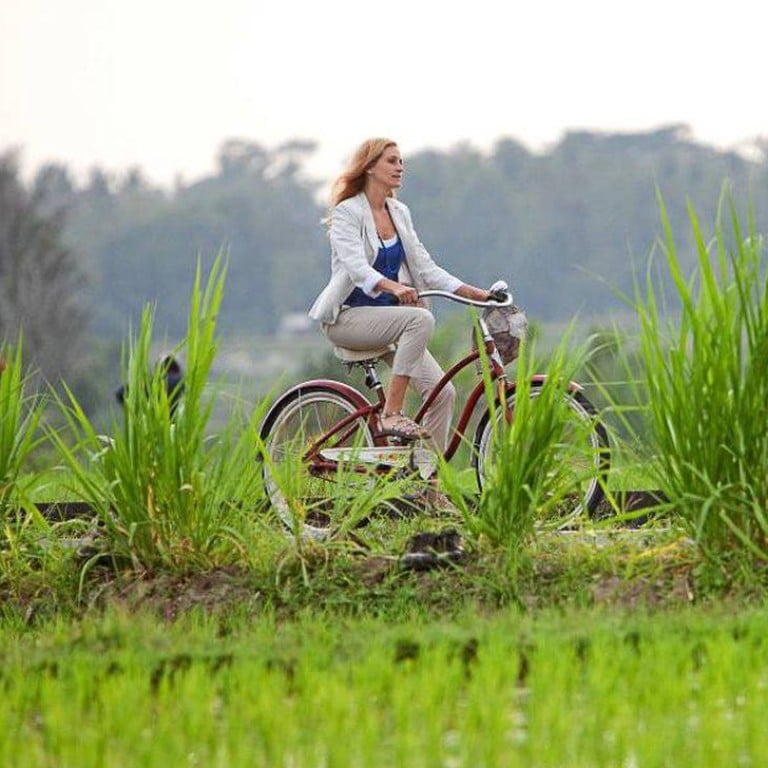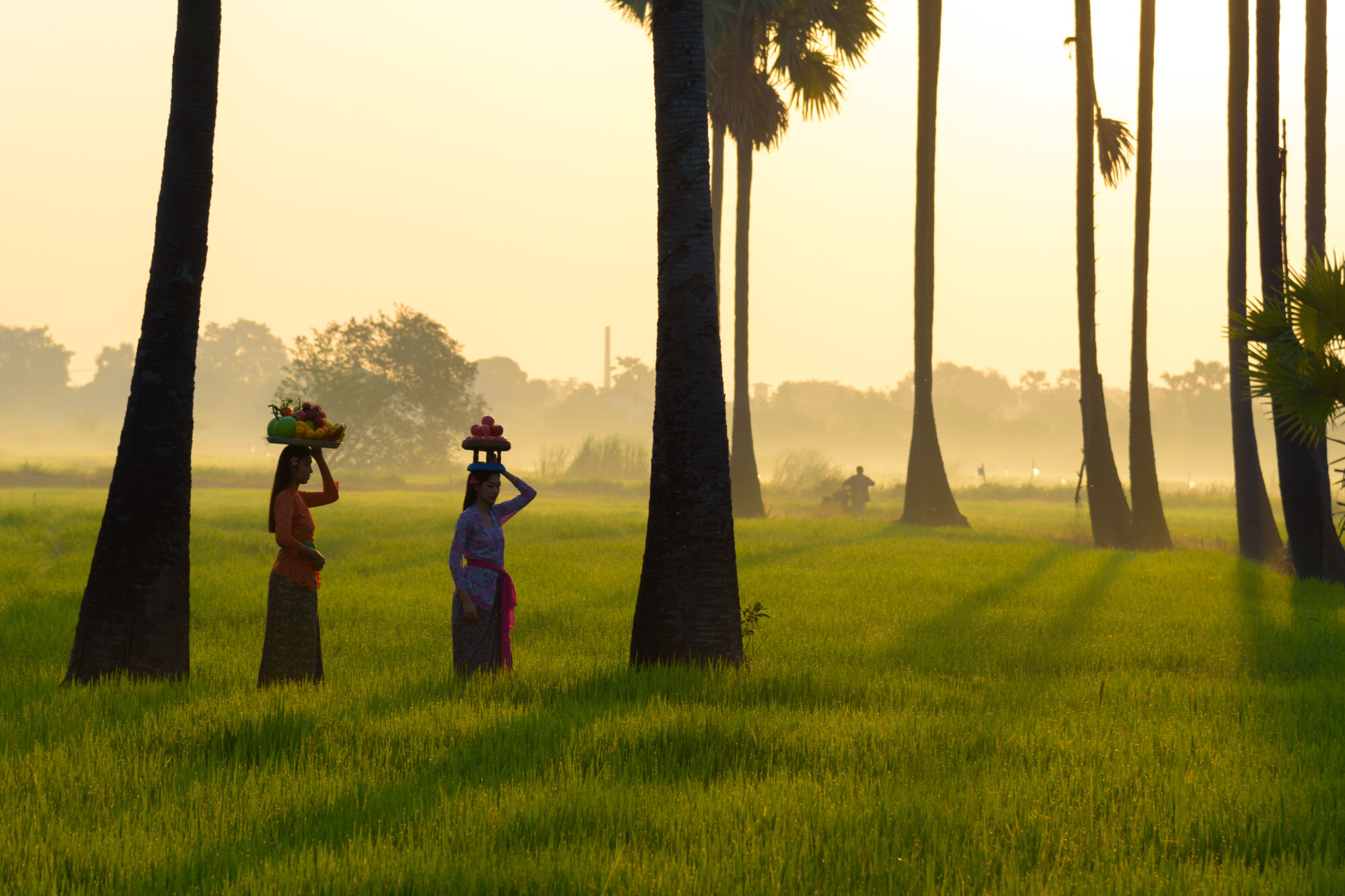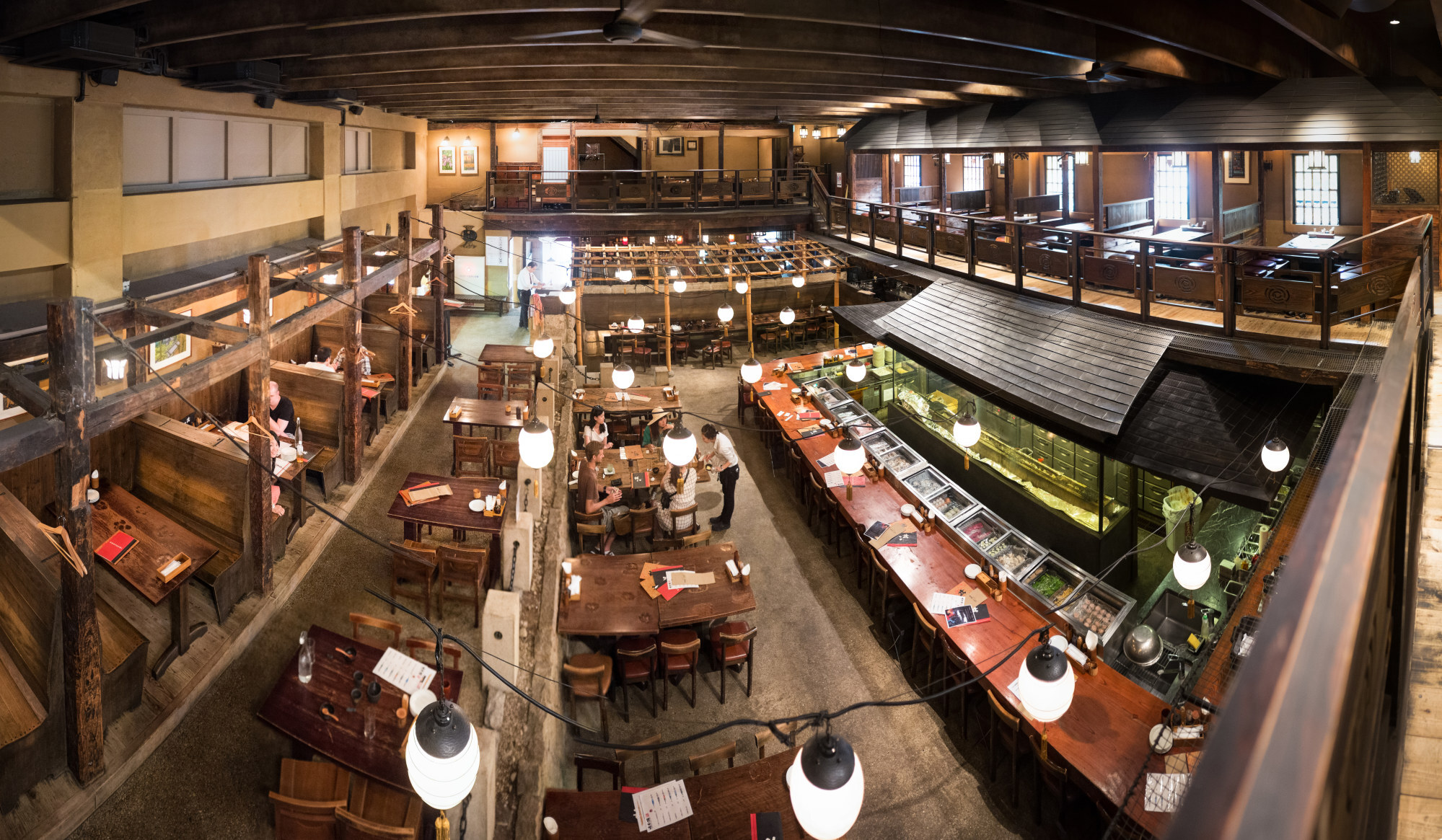
Bali eyed as Hollywood film production hub, prompting ‘film tourism’ chatter – the island could have the kind of exposure Crazy Rich Asians gave to Singapore
- Plans to make Bali a film and television production centre could see the island making more cameo appearances in Hollywood movies
- This would not only employ thousands of people and diversify the tourism-dependent island economy, but could lure more visitors to film and TV locations
The Indonesian island of Bali is no stranger to Hollywood. It provided the backdrop, cast and folk narrative for 1935’s Legong: Dance of the Virgins, a silent exploitation film whose poster advertised “native customs, native music, native cast”, and in 2010 it was where Julia Roberts found herself in Eat Pray Love.
Variety magazine also noted this month: “The deal will see CAA help represent and arrange financing for local-language film and television content in Indonesia and Southeast Asia, as well as advise on the company’s overall entertainment strategy.”
The partnership appears to have the blessing of Indonesia’s minister of tourism and creative economy, Sandiaga Uno. “I am very excited to see United Media Asia’s effort to build and cultivate Bali as a world-class hub for international content,” he said in a statement provided by CAA. “UMA is a promising company with an advanced vision to promote Indonesia’s best assets of arts, creativity and culture while at the same time bridging the gap between Asia’s creative with Hollywood’s cinematic universe.”

Perhaps most importantly for Bali, the development promises to introduce some economic diversification. “Through their productions, UMA will employ thousands of local talent [sic] to bolster the Bali economy, which has been severely impacted by the global pandemic,” the statement continued. Bali’s GDP (gross domestic product) contraction of 9.3 per cent in 2020 was the worst among Indonesia’s 34 provinces, with hotel occupancy rates hovering around 10 per cent, according to financial newspaper Nikkei Asia.
Phuket open to tourists but hits snags; Bali watches and waits
As well as potentially employing thousands in a new industry, it could inspire “film tourism”. This is described by academics as a branch of cultural tourism that “refers to the growing interest and demand for locations which become popular due to their appearance in films and television series”. When done well, film tourism can be “an excellent vehicle for destinations’ marketing and also creates opportunities for product and community entrepreneur development such as location tours or film heritage museums”, according to travel industry website Tourism Tattler.
Just look at what the Lord of the Rings trilogy did to raise New Zealand’s tourism profile, or how captivating Singapore looks in Crazy Rich Asians (2018). The highest grossing movie in China in 2012, Lost in Thailand, inspired record numbers of travellers from the Middle Kingdom to lose themselves in Chiang Mai.
Arguably, Eat Pray Love helped shape Ubud in its image, with one scholar suggesting that “EPL-motivated tourists” had a major impact on “the commodification of agricultural places and the commodification of social practices and sacred rituals”.

In a 2016 paper titled “Film Tourism Indonesia Style”, the authors note that Indonesian cinema has, thus far, been unsuccessful in inspiring movie-related domestic travel, perhaps because “most Indonesian films are set in Jakarta, the capital city of Indonesia, or in a big city with no clear identity”.
Establishing Bali as a production hub could change that. Who knows, perhaps we could be rubbing shoulders with the stars on a flight to the island at some point in the post-Covid-19 future?
No more patience for foreigners
In other Bali-related news, officials on the island appear to have lost patience with foreigners violating Covid-19 restrictions and will now immediately deport anyone found guilty of not respecting the rules.

In a statement released on July 6, Arya Pradhana, of the directorate general of immigration at Indonesia’s Ministry of Law and Human Rights, said, “If a foreigner is found violating the health protocol, the authorities will process him. If he is found guilty, we can deport the foreigner.”
And to prove they are serious, at least three foreign nationals, from the United States, Ireland and Russia, have been sent home after “being found unmasked” in a raid in the Kuta area on July 8, reports the Associated Press.

Defiance in Tokyo
Restaurateur Kozo Hasegawa, whose 43-venue empire includes Gonpachi, aka the Kill Bill restaurant, said he would defy restrictions and open as normal.
“We will continue our ordinary operations all through this new state of emergency, with alcoholic beverages served,” Hasegawa told Reuters.
The curbs do not enforce closures, but ask that establishments close early and abstain from serving alcohol in exchange for a government subsidy.

